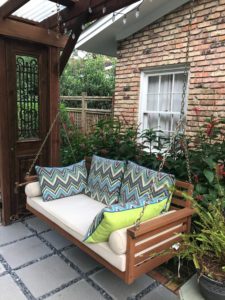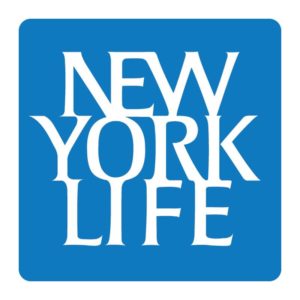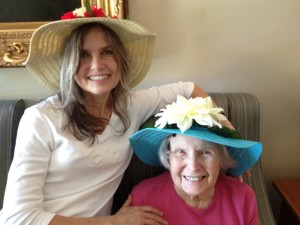How Dementia Friendly Community Initiatives Are Changing Lives in Alabama
Supervising a building project was not on my to-do list. But I did want to see that dream of a pergola with a comfortable swing materialize in my backyard. The deck was rotting and I had stepped through decaying boards more than once. So the project began and I stayed home to be on hand in case any problems arose. Watching the progress through the window, I took the time to work on my online dementia advocacy activities.
An email came explaining several mini-grants were available from the Central Alabama Aging Consortium in Montgomery to expand dementia friendly communities. The idea was to foster increased awareness in Alabama of the growing dementia incidence and initiate and conduct sustainable programs that offer information to assist caregivers and people living with dementia. The Dementia Friendly concept is slowly growing in the United States and I was excited that the movement had reached our state. I forwarded the information to my friend, AL Cares Coordinator, Della Sanchez at the Area Agency on Aging. I knew she was busy already but this was another dream that wouldn’t leave me alone. I thought, “If I could just find someone who wanted it as bad as I did, maybe we could work together.” She sent back the message suggesting, “You do it.” I thought, “Okay, maybe I should try.” But I’ve never written a grant. Where do I go for help? I began researching the Internet for ideas and talking to people who had successfully written and won grants.
With the construction work happening outside, I began my own construction on the computer. In my seat at the kitchen table, I built a plan to promote dementia friendly practices in faith communities. After all, the church seemed the ideal place to start. What better place could a person go to find support, encouragement, and understanding when facing life with dementia? My proposal was to educate church staff on how to recognize dementia, caregiver stress, be able to create an environment that was welcoming and inclusive and have helpful resources on hand. Culminating these efforts would be to offer a Memory Café, providing a safe and understanding social event for people with dementia and their care partner.
Two days before the grant submission deadline, I sent the draft to Mrs. Sanchez at the Area Agency on Aging. She forwarded it to the director of the AAA, Julie McGee who responded back with her own proposal. She advised that I would not be able to qualify for the grant as an individual. She had encouraged and enabled my efforts in the past so I wasn’t completely shocked at what came next. In her gracious, supportive way, this powerful woman offered to submit the grant application, by making a few small changes, thereby adding the weight of her position and the structure of her office. I began to think we had a real chance at qualifying for this grant.
One might wonder why would I go to so much effort to talk about dementia. The answer is simple. Because dementia has a way of changing the lives of everyone it touches. As a caregiver for my mom and later my aunt, who both lived the last years of their lives with dementia, a passion for helping others navigate that journey grew into advocacy and action. The valuable lessons I learned along the way were too precious to keep to myself. Although caregiving requires strength, courage, and perseverance, we found a way to keep hope alive. We discovered that our journey was one of faith and love. This took time to develop but the further along we went, the experience taught us to anticipate change and face each challenge with confidence. We found joy in helping others, giving us purpose for our journey. We walked together to the very end of both my mom’s and my aunt’s life and parted at heaven’s gates. I determined to take what we had learned and continue to advocate for those who were following behind.
The submission deadline was met. We waited. The results were two weeks away. While shopping in Costco the phone call came that we’d been waiting for. Moving over to a quiet corner of the store, I listened to the results. The voice said she wanted me to be the first to know. We had gotten the grant. In the time it took to hear the good news and wipe away my tears, my life changed.
Reality set in. Now I was responsible for following through with this homespun plan. The agreement was clear from the beginning. The Area Agency on Aging would submit the grant, but I would do the work. Based on the Dementia Friendly America model, this was a grassroots operation and I would need help. Fellow advocate, Jerry Horn had already lent his graphic art talents to the cause so we began to talk about creating a brochure. I consulted with Mrs. McGee’s wise administrative assistant, Nancy Bledsoe. This was an unexpected relationship that became my lifeline. She helped me with everything. She advised how I should keep track of my activity and shared her organizational methods. We worked together on spending the budget – what to buy and the channels that it would take to make purchases. She coached me on how to find presentation opportunities. This took several months to carry out. Meanwhile, I began writing a PowerPoint Presentation (PPX) to convey our message and compiling folders to handout that would not only inspire and educate our faith communities but also offer local resources.
Finally, I was ready to start finding churches that would be interested. With brochure in hand and in PDF ready to share, I made phone calls. I sent out Facebook invitations to alert the dementia community of this opportunity. Nothing was forthcoming. This became a little worrisome, as we had proposed that 10 churches would invite me to talk about becoming dementia friendly by the end of September. And August was almost here. I began to look for any opportunity. My first approach was to ask for help and consultation with a church administrator. We met and after spending two hours talking, he asked for a copy of my folder (at this point it was a rough draft). He made his own copy and I left. I documented the meeting and counted it as number 1.
My next opportunity came by way of the Alzheimer’s Association to speak to our local National Association of Retired Federal Employees (NARFE) group that wanted to know more about the association. As the Alzheimer’s Association Ambassador for District 01, I was happy to oblige. After all, NARFE collectively donates millions of dollars to the Alzheimer’s Association each year and I had a projector, screen, and a rolling bag to carry supplies. So I created a new PPX to talk about what they wanted to hear and wove in what else I was doing. I handed out grant-funded materials and gave out several books.
The next event took place at Westminster Village, a retirement community that offers all levels of care. Upon my arrival posters lined the halls with my photo announcing the event. A tech team helped set up, as people filed in, 41 in all. Several friends from the next county showed up. My ambassador team arrived and helped wherever needed. The smiles and interest on the audience’s faces were encouraging.
By now, my calendar had several commitments secured – two being at my Alma Mata, the University of South Alabama. Going from being a voiceless caregiver to speaking at an OT/PT Conference is a surreal experience. Then I spoke to a Therapeutic Recreation class where, as a student years ago, the inspiration to help the aging population began. And best of all, my mentor, Cathy O’Keefe was present to teach the first part of the class. The students seemed engaged and interested when shown the PPX about activities and life in skilled care that came from my personal experiences.
The next events took place in lovely church facilities: one after a luncheon and another on a Sunday afternoon. Refreshments were set out by the church helpers and my husband was available to run the PPX from the sound booth. My friend, Elisabeth Greene directed the people as they arrived, making sure they signed in and got the proper handouts. For 1 1/2 hours, I talked about dementia, how to prepare, and how to continue an emotional connection with loved ones when living with dementia. We had a drawing for books and some activity ideas on display to share.
Occasionally, I have looked at my ambitious calendar and wonder if I am able to do what I’ve committed to. Then I remember the sight of my back bedroom, which is laden with books, handouts, a printer, ink refills, paper, etc. Folders are stacked up in boxes, along with one box devoted to supplies for the Memory Cafe, which we successfully carried out near the end of the grant period. The happy occasion was held at the Mobile Museum of Art. We had music therapy led by Sonya Atwood followed by art instruction from Elizabet Elliot and Angela King. Refreshments were provided by the AARP. There were 23 people in attendance. Many are ready to return to our next Memory Cafe in November.
By the end of the six-month grant period, we reached and exceeded our goals and managed to speak in front of 173 people altogether. More commitments are on the calendar and I continue to say yes to every opportunity.
The dementia friendly movement in Mobile is driven by the same faith and resolve that sustained us while care partnering. If you have a passion to help create a culture where people with dementia can feel respected, supported and included in everyday community life, now is the time to act. The Central Alabama Aging Consortium is now offering Dementia Friendly Communities Expansion Mini-Grants to people who are ready to change lives: their own and those of people living with or caring for people with dementia. Contact Stephanie Holmes for further information at Stephanie.Holmes@adss.alabama.gmail.com or visit http://centralalabamaaging.org/category/calendar/and learn how to apply.
With our grant completed and more being offered, let’s continue to build dementia friendly communities, offering hope to the thousands who are impacted daily in Alabama. Catch the vision. We all have a part to play in order to reach all areas of the community. Won’t you join us?
Beth Reinert, October 2017Dementia Friendly Project Manager
Dementia Friendly Project Manager






Recent Comments